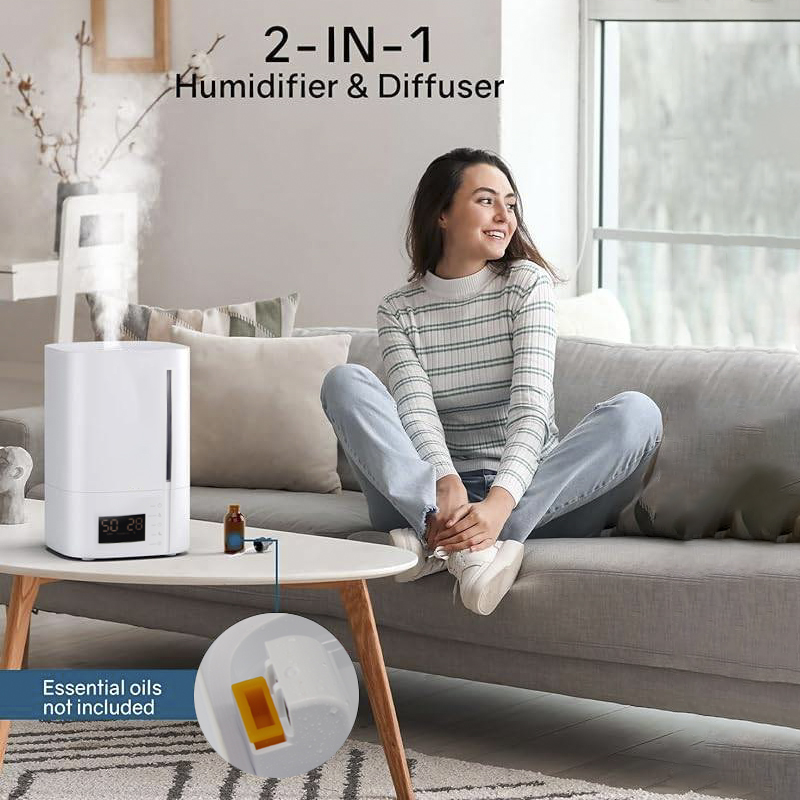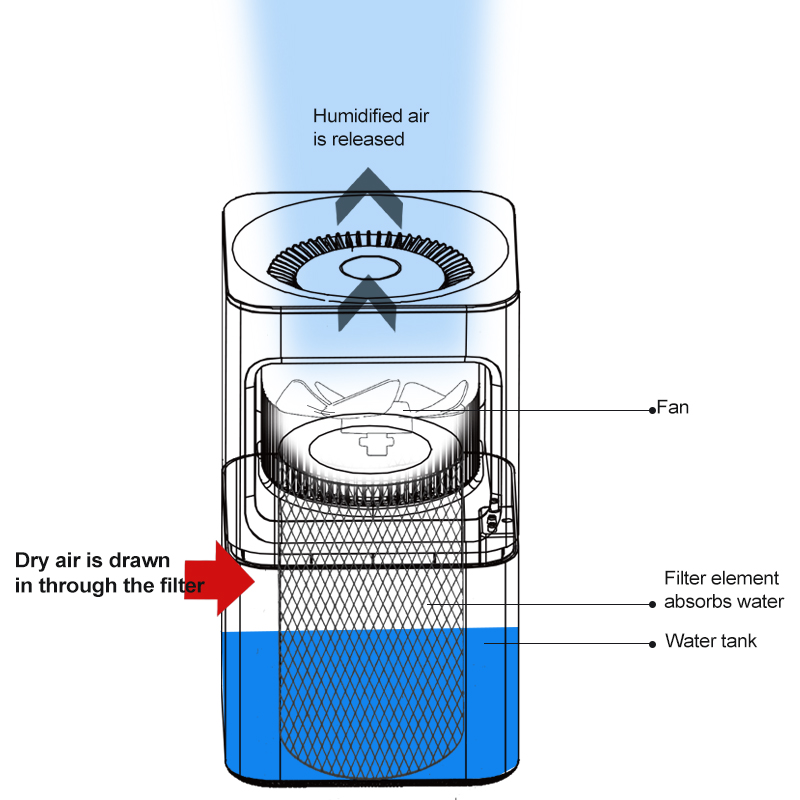The age-old debate: ultrasonic vs evaporative humidifiers. Which one should you choose? If you've ever found yourself scratching your head in the humidifier aisle of your local home goods store, you're not alone. The decision can be overwhelming, especially when both types seem to promise the same thing: more moisture in the air. But as we'll see, the devil is in the details.
In this article, we'll break down the differences between these two popular types of humidifiers, weigh the pros and cons, and help you make an informed decision for your specific needs.

Part 1. What Is an Ultrasonic Humidifier?
An ultrasonic humidifier uses high-frequency vibrations to turn water into a fine mist, which is then released into the air. Think of it as a mini fog machine for your home. The technology behind it is pretty straightforward: a small metal plate vibrates at an ultrasonic frequency, breaking down the water particles into vapor.
Pros
Quiet Operation: Ultrasonic humidifiers are generally quieter, making them ideal for bedrooms or offices where noise can be a concern.
Energy Efficiency: These units consume less electricity, making them more cost-effective in the long run.
Cons
White Dust: They can produce white dust, a byproduct of minerals in the water, which may require you to use distilled water.
Regular Cleaning: These humidifiers require frequent cleaning to prevent mold and bacterial growth.

Part 2. What Is an Evaporative Humidifier?
Evaporative humidifiers are the most common type and have been around for quite some time. They use a fan that blows the air through a wet filter. As the air passes through, it gets the moisture and spreads it into the room. It's a natural process that mimics the way moisture evaporates into the air.
Pros
Self-Regulating: Evaporative humidifiers automatically adjust to the room's humidity, preventing over-humidification.
No White Dust: These units are less likely to produce white dust, making them better for those with respiratory issues.
Cons
Noise Level: They tend to be noisier due to the fan, which may not be suitable for all settings.
Filter Replacement: The filter needs regular replacement, adding to the overall cost.
Part 3. Ultrasonic or Evaporative Humidifiers, Which is Better?
The question of which humidifier is better (ultrasonic or evaporative) depends on your specific needs and preferences. If you are looking for a quiet, energy-efficient option for a larger space, an ultrasonic humidifier may be a better choice.
These units are generally quieter and are great for bedrooms or offices. They also tend to have larger water tanks, which can humidify larger areas more effectively. However, they do require more meticulous cleaning to prevent bacteria and mold growth, and they can produce white dust if you don't use distilled water.
Evaporative humidifiers, on the other hand, are generally better suited for those with health issues because they are less likely to produce white dust and can filter out impurities. Our BIZOE evaporative humidifier series generally has a range of (5w-18W) options, and consumes less electricity, which may be a benefit to your electricity bill. They are also generally easier to maintain, and the filters are easy to replace, although replacement may increase long-term costs.
Post time: Oct-31-2024

